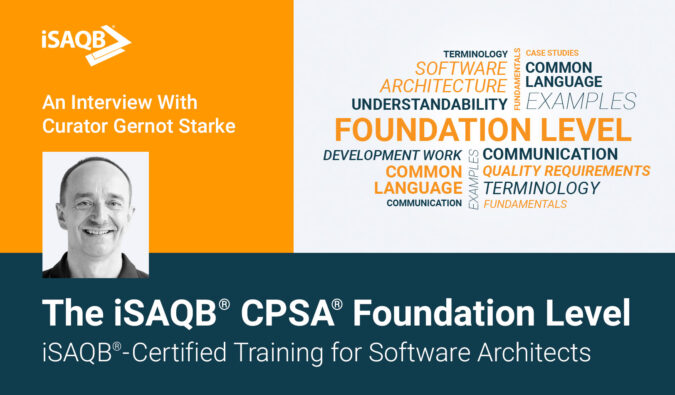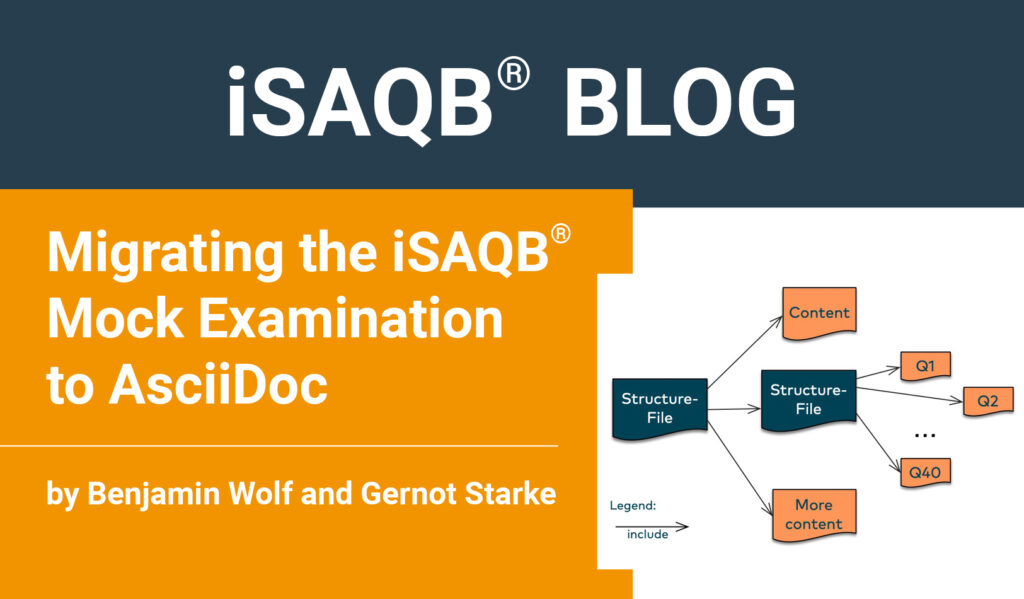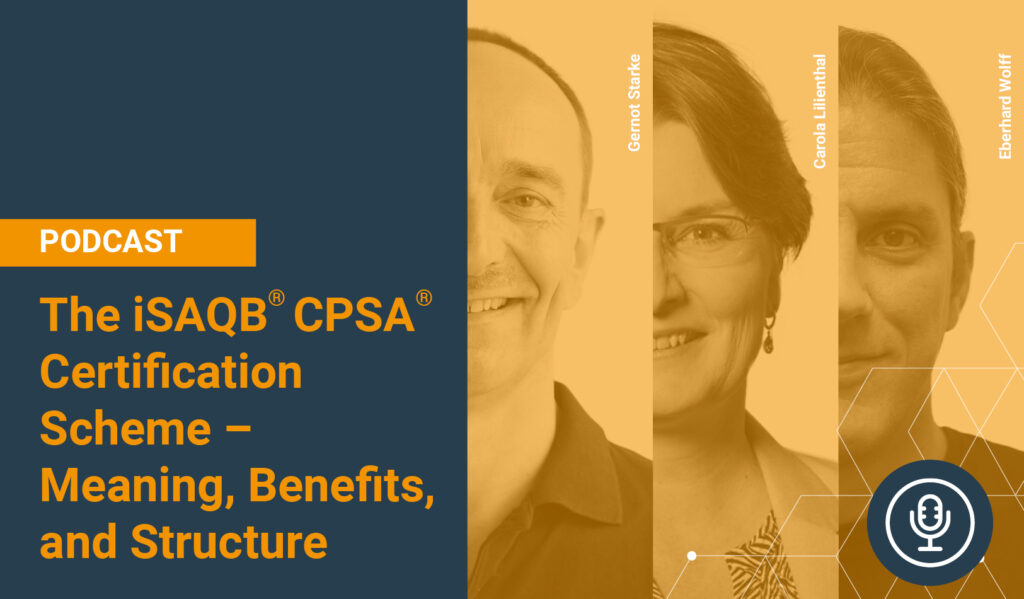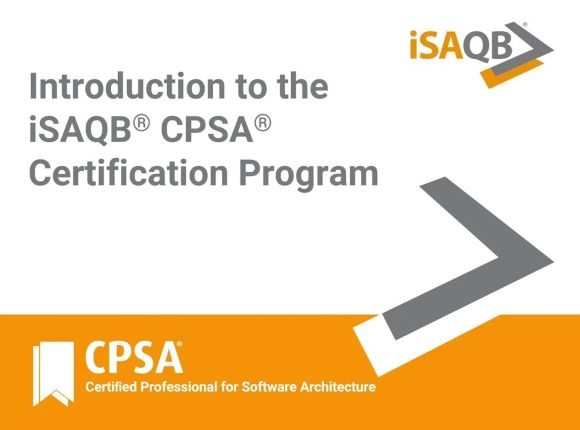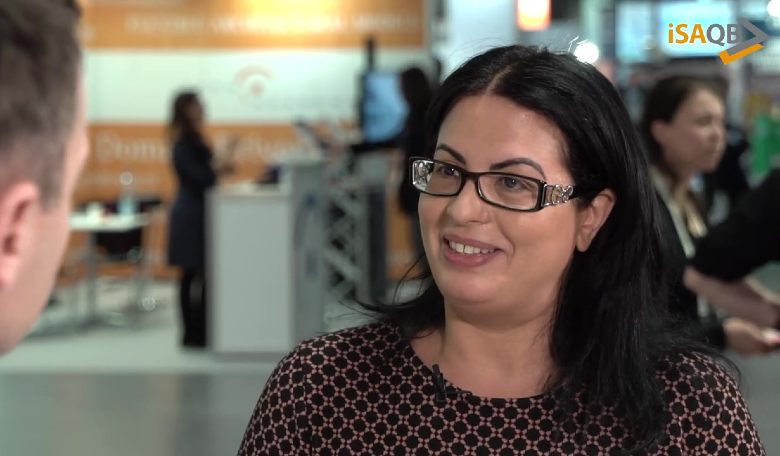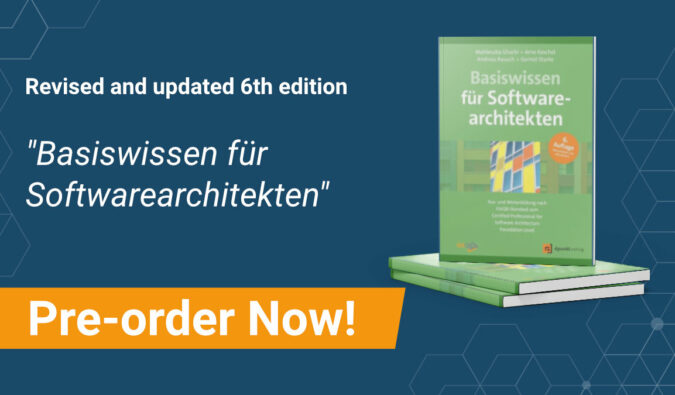Why Should I attend the CPSA® Foundation Level Training Course?
An Interview With Curator Gernot Starke
The iSAQB’s Certified Professional for Software Architecture program (CPSA) is a program of further education. It is aimed at anyone who works on solution structures in IT projects.
Within the multi-level CPSA program, the Foundation Level is the first step. It provides a solid and pragmatic introduction to software architecture.
But why exactly should you, an experienced IT expert, participate in such a training? And is it also suitable for other roles?
In the following interview, Foundation Level curator Gernot Starke will shed some light upon your most relevant questions as a potential participant.
Am I the right participant? Which audience does the Foundation Level address?
The Foundation Level establishes a solid understanding of architecture fundamentals – which can be useful for anyone working in software development.
However, the Foundation Level is primarily aimed at people who actively develop or design software.
Oftentimes, product owners, requirements engineers, or testers participate, as those roles also need to know what “software architecture” is all about.
How is the Foundation Level training course relevant for my professional practice as a software architect?
The name of the course says it all: It is about fundamentals, both in terms of content and terminology.
The Foundation Level teaches the common language of our discipline, so that participants get a precise understanding of it, for example of the role and tasks of architects. This allows for a much better communication in teams and much less “talking at cross-purposes”.
In addition, the Foundation Level imparts a number of methodical basics of architecture work, which are specified in the training courses by means of case studies and examples.
Participants gain an understanding of how to achieve essential quality requirements, how to systematically structure systems, and how to take architecture and technology decisions.
Which skills do I acquire at Foundation Level, what exactly do I learn in this training?
At Foundation Level, we emphasize the ability to communicate technical or structural relationships, both orally and in writing. That is why we ask participants of our courses to explain their solution approaches to sample tasks to the entire group.
Furthermore, we explain and practice the ability to work out decisions in different dimensions or views, for example on modules and components, on external interfaces, on cross-cutting concepts, or on infrastructure and distribution.
At Foundation Level, we substantiate all of this with a multitude of fundamental design principles and patterns in order to best prepare participants for everyday architecture and development work.
Does the Foundation Level also help me if I usually work on smaller or medium-sized systems?
Yes, definitely: The size of a system has an influence on the architecture, but even in smaller systems, critical quality requirements, like maintainability, time-to-market, robustness, or understandability really make the difference.
Teams (and/or architects) should be able to systematically work out such qualities, regardless of size, scope, or technology. Here, the Foundation Level provides a set of methodical tools.
Furthermore, the Foundation Level creates a solid conceptual basis in order to communicate effectively with other stakeholders from within development projects – with requirements, test, or management, for example.
Do I need to be good at programming to benefit from the Foundation Level?
Yes and no: Development or programming experience is helpful, but the methodical competence from the Foundation Level can also be understood by participants without extensive programming experience. After all, we are talking about technology and vendor-neutral methodology.
However, if someone wants to take their own design and architecture decisions, programming experience is almost essential – which is why it is explicitly required in the prerequisites for Foundation Level training.
As mentioned above in relation to the target group – product owners, employees from management or other roles often take part in the training courses, and the Foundation Level allows them to improve their communication with development teams.
You would like to learn more about the CPSA Foundation Level? Please visit the Foundation Level web page.
You would rather find and book a suitable Foundation Level training course right away? Then check out our training calendar.
Share this article:
Related Posts
- « Previous
- 1
- 2
About the Author


